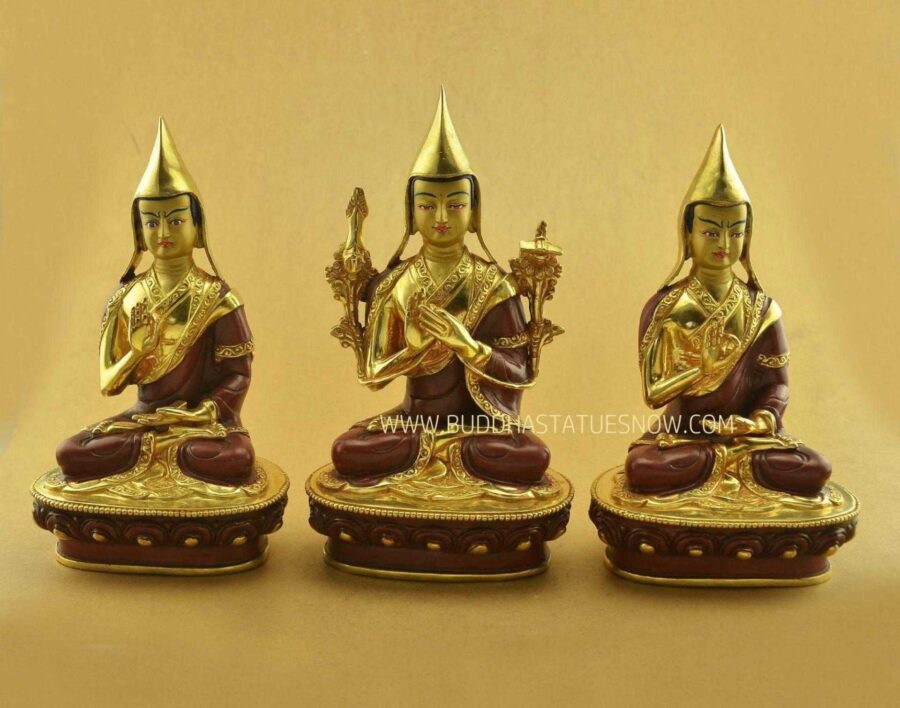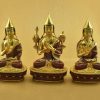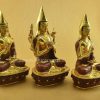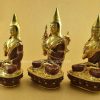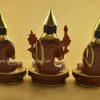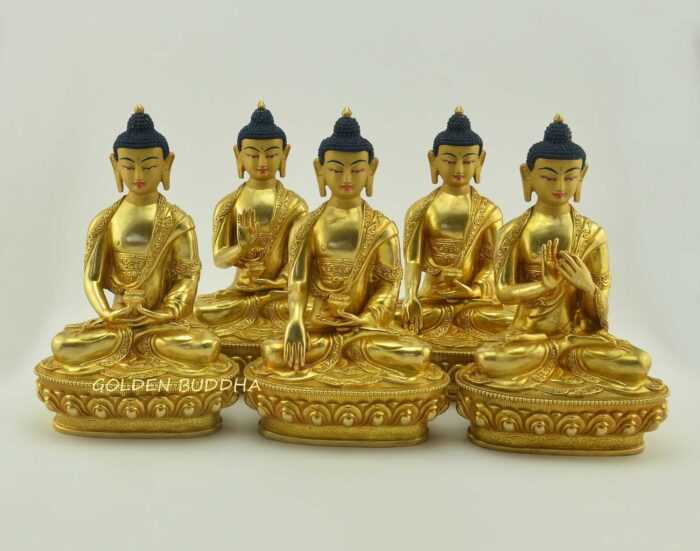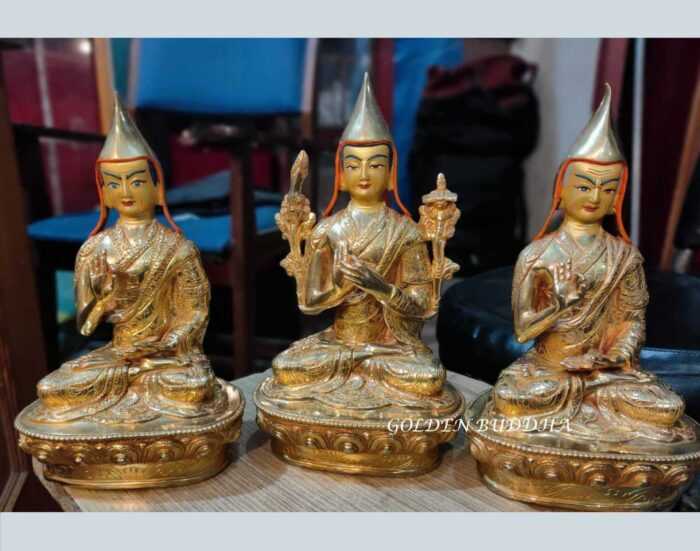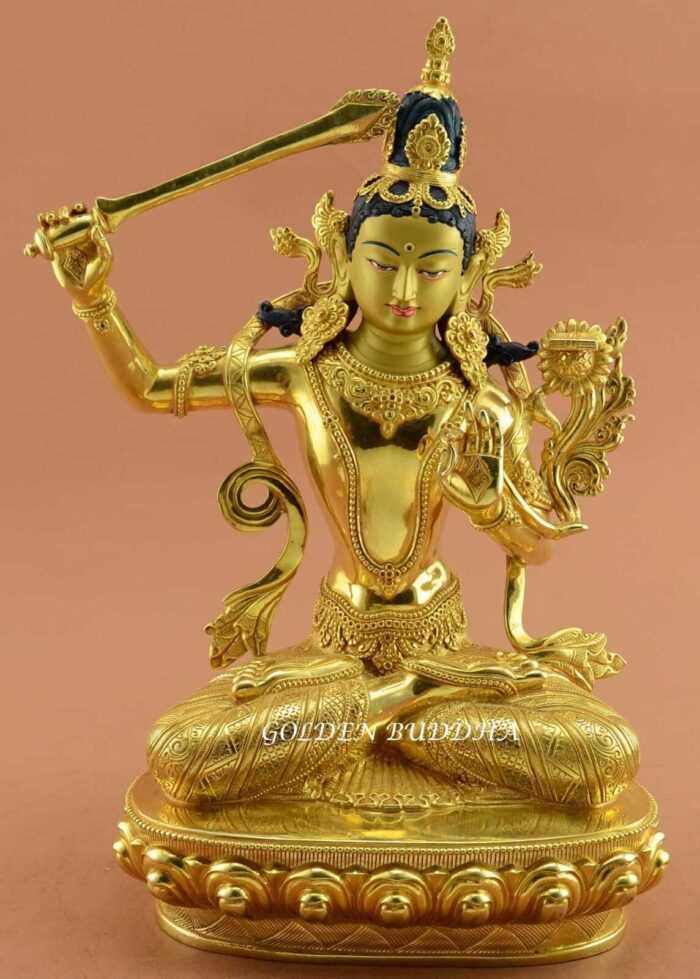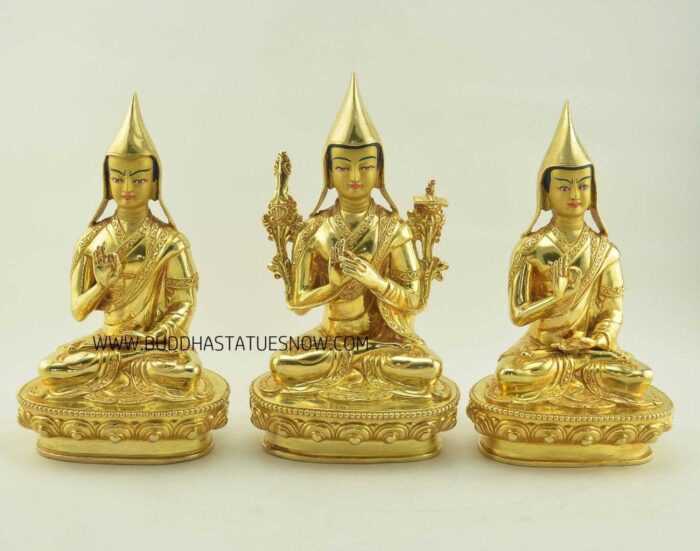The statue of Guru Tsongkhapa features two lotus flowers growing over each shoulder. Over his left shoulder the lotus flower holds the Prajnaparamita Sutra which is the book of “Perfected Wisdom”. Additionally, the lotus over his right shoulder features Manjushri’s sword of wisdom rising out of the blossom. He is depicting the Dharmachakra mudra which symbolizes the setting of the “Wheel of Dharma” in motion by Shakyamuni Buddha.
His two disciples hold their right hands at the level of their hearts exhibiting the gesture of expounding the Dharma. Additionally, their left hands depict the Dhyana mudra. All three statues are depicted wearing the yellow long eared hats symbolizing that they have completed the perfection of wisdom. They also wear the robes of ordained monks reflecting that they have completed the order of moral discipline.
Symbolism of Guru Tsongkhapa and his Disciples
This special Guru Tsongkhapa Statues set includes 3 statues featuring Guru Tsongkhapa and his two main disciples – Gyaltsabje and Khedrubje. Guru Tsongkhapa is believed to be an incarnation of the Bodhisattva Manjushri representing the Buddha’s wisdom. Additionally, Gyaltsabje is deemed to be Avalokitesvara representing the compassion of all the Buddhas. Finally, Khedrubje is believed to be Vajrapani who represents all the Buddhas power.
This Guru Tsongkhapa statues set pays special tribute to Tsongkhapa who is the founding father of the Gelug school of Buddhism. Additionally, Tibetan Buddhists believe that Shakyamuni Buddha prophesied that Guru Tsongkhapa would appear as Manjushri. The Buddha says he would appear as an ordinary being to teach the ways of the Buddha. Also, he was to establish a “joyful” land in the “Land of the Snows” where he would serve as it’s protector. The Gelug school of Buddhism is still predominant today and it is represented by the 14th Dalai Lama. Click here to learn more about the history of Tibetan Buddhism.


